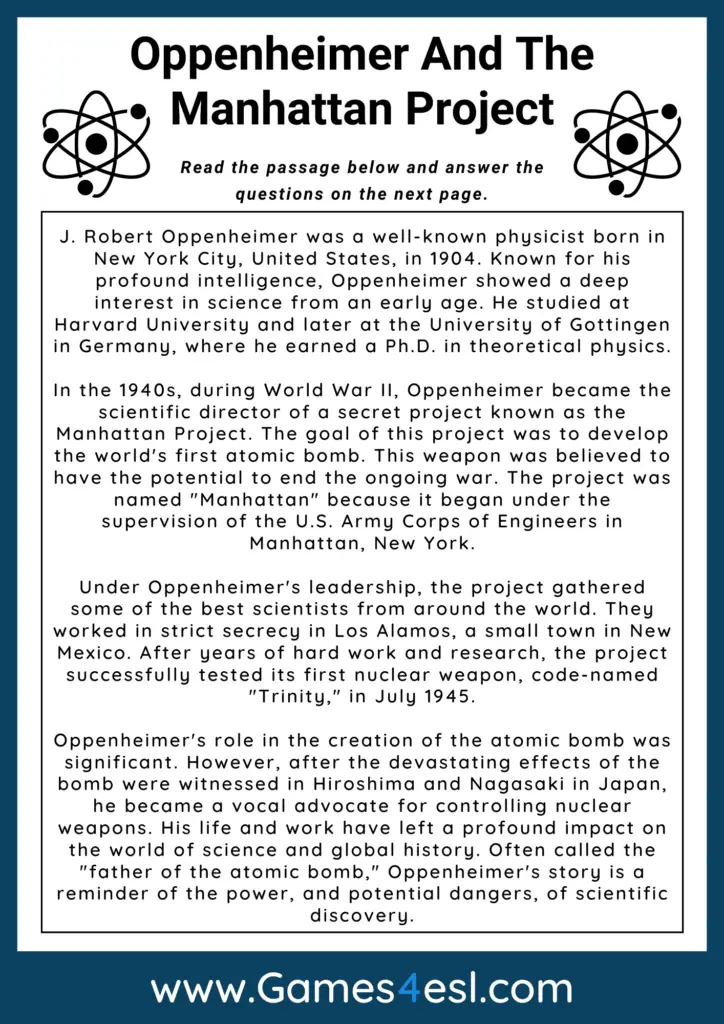J. Robert Oppenheimer And The Manhattan Project | Reading Comprehension

This reading comprehension worksheet is about J. Robert Oppenheimer and the Manhattan Project. It discusses who Oppenheimer was and his role in creating the first atomic bomb in the Manhattan Project. To complete the worksheet, students are asked to read the passage and then complete five reading comprehension questions on the next page.
Complete Online
Save paper and complete this reading comprehension online! Read the passage below about Oppenheimer And The Manhattan Project. Then, answer the questions at the bottom of the page.
J. Robert Oppenheimer
Read the passage and then answer the questions below.
J. Robert Oppenheimer was a well-known physicist born in New York City, United States, in 1904. Known for his profound intelligence, Oppenheimer showed a deep interest in science from an early age. He studied at Harvard University and later at the University of Gottingen in Germany, where he earned a Ph.D. in theoretical physics.
In the 1940s, during World War II, Oppenheimer became the scientific director of a secret project known as the Manhattan Project. The goal of this project was to develop the world’s first atomic bomb. This weapon was believed to have the potential to end the ongoing war. The project was named “Manhattan” because it began under the supervision of the U.S. Army Corps of Engineers in Manhattan, New York.
Under Oppenheimer’s leadership, the project gathered some of the best scientists from around the world. They worked in strict secrecy in Los Alamos, a small town in New Mexico. After years of hard work and research, the project successfully tested its first nuclear weapon, code-named “Trinity,” in July 1945.
Oppenheimer’s role in the creation of the atomic bomb was significant. However, after the devastating effects of the bomb were witnessed in Hiroshima and Nagasaki in Japan, he became a vocal advocate for controlling nuclear weapons. His life and work have left a profound impact on the world of science and global history. Often called the “father of the atomic bomb,” Oppenheimer’s story is a reminder of the power, and potential dangers, of scientific discovery.
